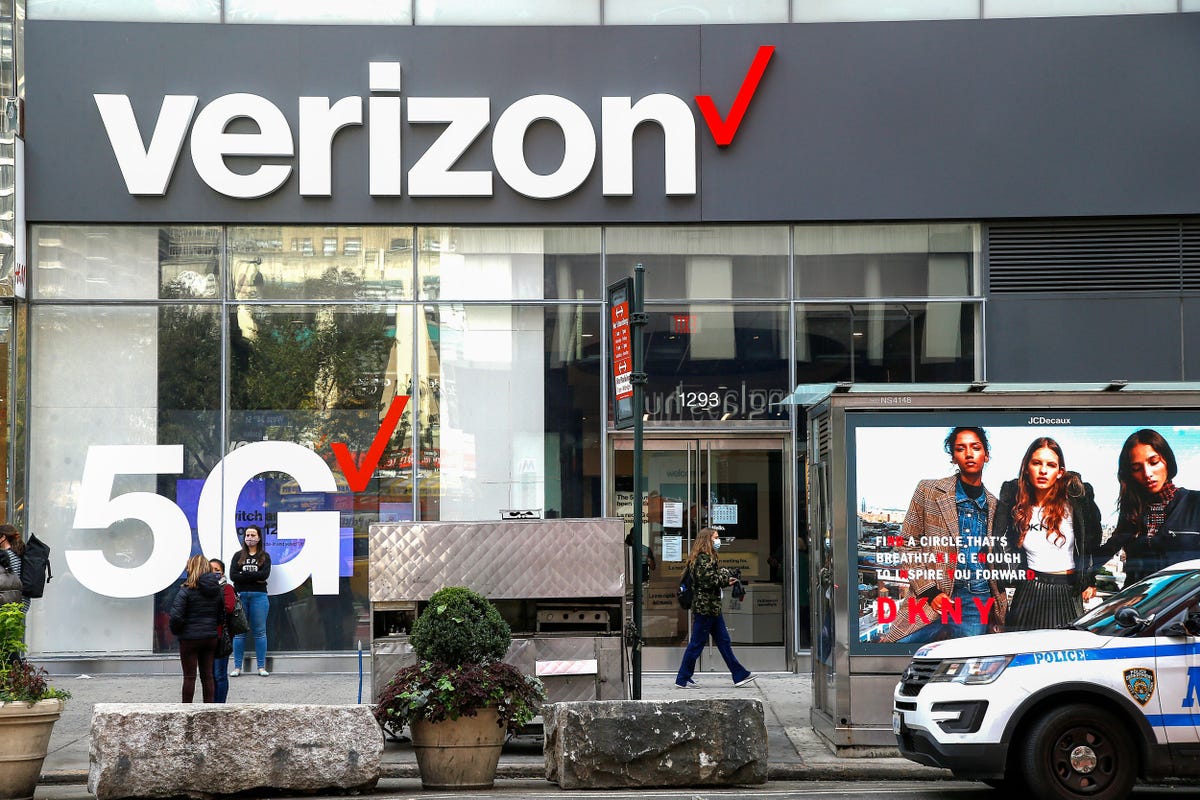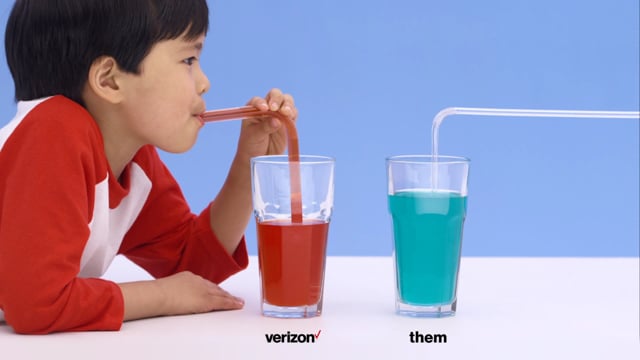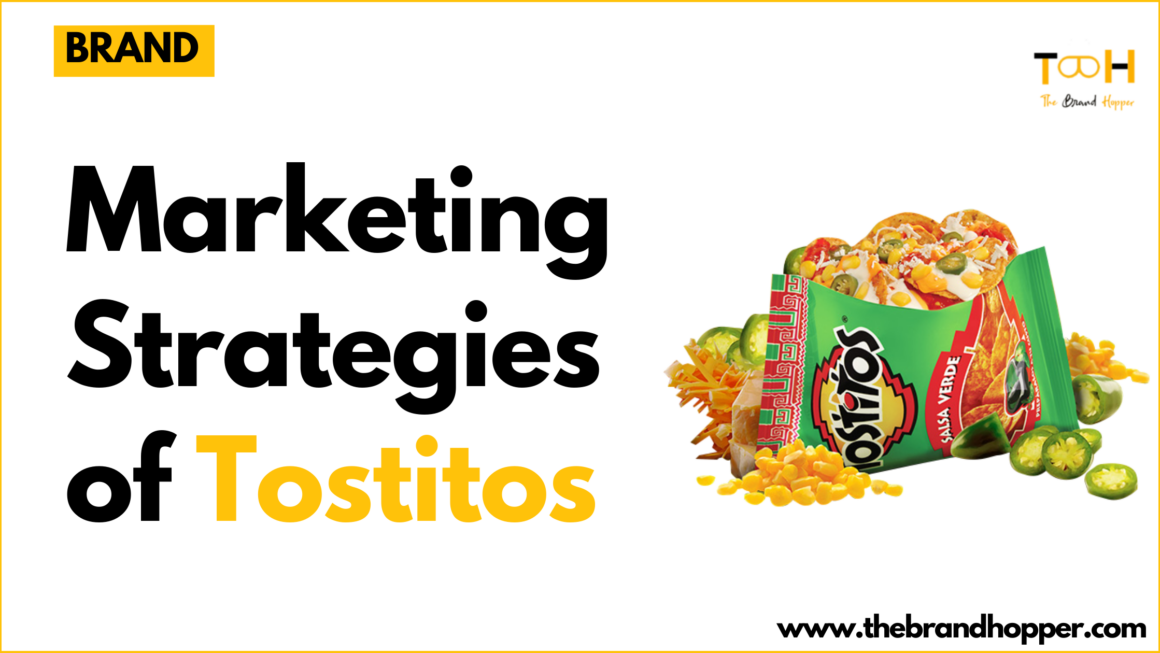In an era defined by connectivity and rapid technological advancement, Verizon stands as a prominent player in the telecommunications industry, providing a wide spectrum of communication and digital services. Established as a merger between Bell Atlantic and GTE Corporation in 2000, Verizon has since evolved into a global leader, renowned for its commitment to innovation, network reliability, and seamless customer experiences. In this article, we’ll explore the Winning Marketing Strategies of Verizon: From Captivating Campaigns to Customer-Centric Approaches.
Verizon Communications Inc. is an American multinational telecommunications conglomerate headquartered in New York City. It is the largest wireless telecommunications carrier in the United States, with over 120 million customers. Verizon also provides landline telephone, internet, and television services.
Verizon’s roots trace back to the early days of telecommunications, when the Bell Telephone Company laid the groundwork for the modern communication landscape. Over the years, mergers, acquisitions, and a focus on staying at the forefront of technological advancement have propelled Verizon’s transformation from a traditional telephone company to a cutting-edge provider of wireless, broadband, and digital services.
The company was founded in 2000 by the merger of Bell Atlantic and GTE. Verizon has since acquired a number of other telecommunications companies, including MCI, Sprint Nextel, and Yahoo!.
Verizon’s wireless network covers over 99% of the United States. The company offers a variety of wireless plans, including postpaid, prepaid, and unlimited plans. Verizon also offers a variety of wireless devices, including smartphones, tablets, and wearables.
Verizon’s landline network covers over 75% of the United States. The company offers a variety of landline plans, including basic, digital, and fiber optic plans. Verizon also offers a variety of landline features, including voicemail, caller ID, and call waiting.
It’s internet service is available in over 200 markets in the United States. The company offers a variety of internet plans, including DSL, fiber optic, and fixed wireless plans. Verizon also offers a variety of internet features, including parental controls and virus protection.
The company’s television service is available in over 150 markets in the United States. The company offers a variety of television plans, including cable, satellite, and streaming plans. Verizon also offers a variety of television features, including DVR, On Demand, and HDTV.
Verizon is a major player in the telecommunications industry. The company is known for its wide range of products and services, its reliable network, and its customer service. From its roots in traditional telecommunications to its current status as a global tech and media leader, Verizon’s impact on modern communication is profound and enduring. Through network reliability, digital services, and a customer-centric approach, the company continues to redefine the boundaries of communication in an ever-changing world.
Marketing Strategies of Verizon Communications
Verizon Communications has carved a remarkable niche by redefining connectivity and communication. With a comprehensive suite of services encompassing wireless, broadband, entertainment, and digital platforms, Verizon’s success is intricately tied to its strategic marketing approaches. Let’s dissect the core strategies that have propelled Verizon Communications to the forefront of the industry, shaping how people connect, engage, and experience the digital world.
Network Reliability as a Cornerstone
Network reliability is one of the cornerstones of Verizon Communications’ strategy because it ensures high levels of quality and dependability for its services. A reliable network translates to fewer dropped calls, faster data speeds, consistent Wi-Fi coverage, and minimal downtime due to technical issues.
Verizon invests heavily in infrastructure upgrades and maintenance programs to maintain network reliability. Some key aspects of this approach include:
Wireless Coverage Expansion: Verizon continuously expands its wireless footprint through strategic acquisitions, site builds, and small cell deployments. This expansion improves overall network capacity and extends coverage to rural areas where connectivity can be limited.
Fiber Optic Deployment: Verizon has been rolling out fiber optic networks nationwide under its “One Fiber” program. This advanced infrastructure enables higher internet speeds, increased bandwidth capabilities, and improved latency management. It also supports future technologies like 5G and IoT devices.
Advanced Technical Capabilities: Verizon utilizes state-of-the-art equipment and software tools to monitor, diagnose, and resolve network issues quickly. This includes artificial intelligence algorithms, machine learning analytics, and predictive modeling to anticipate potential problems before they impact users.
Cybersecurity Measures: Network reliability involves protecting against cyber threats that could compromise user privacy or system integrity. Verizon takes a multi-layered approach to safeguard its networks using firewalls, encryption protocols, threat detection systems, and employee training programs.
Disaster Recovery Planning: Verizon prepares contingencies for unexpected situations like natural calamities or manmade emergencies. This planning includes backup power supplies, redundant communication links, and crisis response teams ready to restore essential services swiftly.
By focusing on network reliability, Verizon positions itself as a leader in delivering reliable telecommunications services to businesses and consumers alike. As technology continues to evolve, Verizon remains committed to investing in cutting-edge solutions that improve network performance and customer satisfaction.
The company understands that providing seamless access to information and digital applications is crucial for modern society and economic progress. Therefore, it prioritizes network reliability as an integral part of its mission to empower individuals and communities through innovative communications platforms.
Pioneering Technological Innovation
Verizon’s legacy is interwoven with technological innovation, and this narrative plays a pivotal role in its marketing strategies. The company’s early investment in 4G LTE technology marked a watershed moment, propelling it ahead of competitors in terms of data speed and accessibility.
Verizon Communications has consistently demonstrated pioneering spirit by embracing new technologies and transforming industries. Here are some examples of how Verizon leads technological innovation:
5G Rollout: In 2018, Verizon became the first U.S. carrier to launch commercial 5G services. Since then, the company has expanded its 5G network across multiple cities and regions, offering ultra-fast mobile broadband connections and enabling new use cases such as AR/VR gaming, real-time video streaming, and industrial automation.
Internet of Things (IoT): Verizon has developed a comprehensive suite of IoT solutions designed to help enterprises streamline operations, optimize resource allocation, and gain insights into complex workflows. Its IoT platform integrates various sensors, edge computing components, and cloud-based analytics tools to create end-to-end solutions tailored to specific industry needs.
Smart Communities: Verizon collaborates with local governments and private partners to build smart city ecosystems leveraging next-generation networking, intelligent transportation systems, public safety enhancements, and energy efficiency improvements. These projects aim to reduce environmental impact, increase livability indices, and foster economic development.
Media & Entertainment Services: Verizon acquired Yahoo! Inc.’s operating business to form Oath, which provides media and entertainment services including news, sports, finance, and lifestyle content via digital platforms. Additionally, Verizon launched Apple TV apps integrated with live linear TV channels and on-demand programming from leading brands like Disney, HBO, and ESPN.
Edge Computing Research: Verizon conducts research focused on edge computing architectures capable of processing large volumes of data generated by IoT devices in near-real time. This work explores distributed computing models, device-side ML inference, and low-latency networking techniques to support future scenarios involving massive amounts of connected objects generating vast quantities of sensor data. By advancing edge computing paradigms, Verizon seeks to enable more efficient and secure handling of IoT data at the source, reducing transmission overheads and minimizing exposure to security risks associated with transmitting sensitive information over long distances.
Artificial Intelligence and Machine Learning: Verizon leverages AI and ML technologies to develop novel products and services that benefit customers. For instance, the company uses AI chatbots to assist customers with account management tasks, while its Threat Management Platform applies ML algorithms to detect and mitigate cyber threats targeting its networks.
Software Defined Networking (SDN) and Network Function Virtualization (NFV): Verizon embraces SDN and NFV principles to simplify network design, deployment, and operation processes. By virtualizing traditional hardware appliances and centralizing control functions within open-source environments, Verizon optimizes resources usage, reduces costs, and accelerates service delivery timescales.
Building on this legacy, Verizon’s ongoing rollout of 5G networks promises to revolutionize industries by enabling faster connections, low latency, and unprecedented capabilities, and the company doesn’t hesitate to showcase its cutting-edge infrastructure in its marketing campaigns.
Tailored Customer Experiences
At the heart of Verizon’s tailored customer experiences lies a comprehensive understanding of diverse customer needs. The company actively engages in market research and data analysis to discern individual preferences, usage patterns, and expectations. This data-driven approach allows Verizon to create targeted offerings that resonate with different segments of its customer base.
Verizon’s approach to customization is exemplified by its array of flexible plans and bundled services. Recognizing that one size doesn’t fit all, the company offers a range of plans that cater to varying data usage, voice calling, and messaging requirements. Moreover, bundled service offerings combine multiple communication services, such as wireless, broadband, and entertainment, into convenient packages that align with customers’ lifestyles and preferences.
Verizon’s commitment to personalization extends beyond basic plans. The company offers a myriad of personalized add-ons and features, allowing customers to tailor their communication experience further. From international calling options and data boosters to device protection plans and premium content subscriptions, customers can curate their communication solutions to suit their specific needs.
Educational and CSR Initiatives
Verizon’s marketing strategies extend to corporate social responsibility (CSR) initiatives that resonate with modern consumers. The Verizon Innovative Learning program, for instance, reflects the company’s commitment to bridging the digital divide by providing technology resources and educational opportunities to underserved communities.
Verizon Communications recognizes the importance of education and corporate social responsibility (CSR) initiatives in building a sustainable society and workforce. Some examples of their educational and CSR efforts include:
Verizon Innovative Learning: This initiative provides free technology, STEM education, and hands-on learning experiences to students who may not have access to quality education resources. It includes partnerships with organizations like the Boys & Girls Clubs of America, Girl Scouts USA, and the YMCA to bring tech education into afterschool and summer programming.
Internet Safety Education: Verizon emphasizes internet safety education for kids and parents through its “Be Seen and Heard” campaign. They aim to raise awareness about responsible online behavior and protect children from online dangers such as cyberbullying, identity theft, and sexual predators.
Diversity and Inclusion Efforts: Verizon prioritizes diversity and inclusion within its organization and beyond. For instance, they launched the “Technology Should Help People” ad campaign featuring individuals with disabilities showcasing how technology empowers them to achieve more. Additionally, they partnered with the National Urban League to support diverse entrepreneurs and small businesses.
Environmental Stewardship: Verizon is committed to reducing its carbon footprint and minimizing environmental impact through energy efficiency measures, renewable energy procurement, and waste reduction initiatives. They also encourage employees to participate in volunteering activities focused on conservation and cleanup efforts.
Employee Engagement: Verizon encourages employee engagement in community service through paid time off for volunteering, matching donations to eligible nonprofits, and organizing group volunteer events. Their “Verizon Volunteers” program unites employees worldwide in giving back to local communities.
This alignment with social values not only reinforces Verizon’s brand image but also highlights its dedication to making a positive impact.
Seamless Digital Experience
Verizon’s digital touchpoints, from interactive websites to mobile apps, offer customers a seamless experience. With easy access to account management, customer support, and personalized content, Verizon leverages digital platforms to facilitate user engagement, streamline interactions, and gather insights for continuous improvement.
Verizon Communications is committed to providing a seamless digital experience for its customers. The company has a number of initiatives underway to make it easier for customers to do business with Verizon online, over the phone, and in person.
Here are some of the ways Verizon is working to improve the digital experience:
- Investing in its website and mobile app: Verizon is constantly investing in its website and mobile app to make them more user-friendly and engaging. The company is also adding new features and functionality to make it easier for customers to manage their accounts, shop for products and services, and get support.
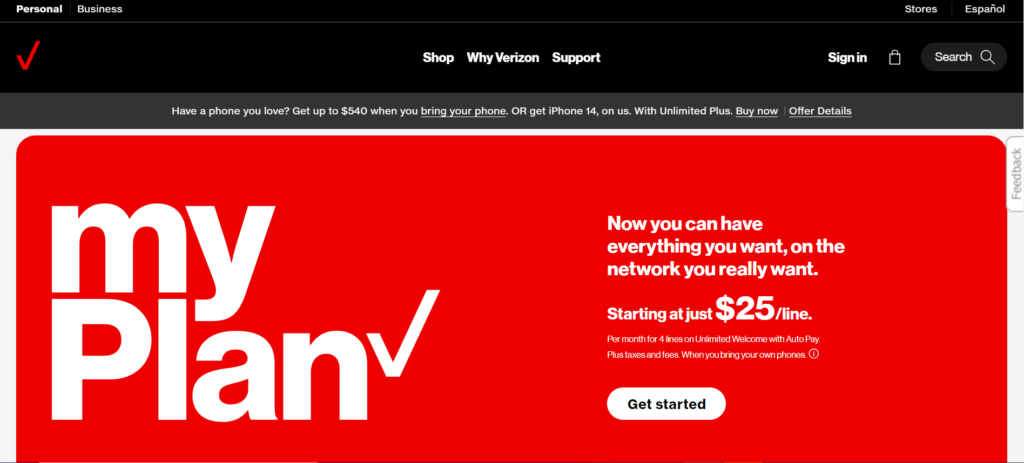
- Using data analytics to personalize the experience: Verizon uses data analytics to better understand its customers’ needs and preferences. This information is used to personalize the customer experience, such as by recommending products and services that are likely to be of interest to each customer.
- Empowering employees with digital tools: Verizon is investing in digital tools to empower its employees to provide better customer service. These tools include chatbots, AI-powered virtual assistants, and knowledge bases.
- Self-Service Tools: The company offers self-service tools such as My Verizon Access, Device Payment Calculator, and Plan Comparison Tool to enable customers to make informed decisions about their wireless services. These tools allow customers to explore different options before committing to any changes.
Verizon’s efforts to improve the digital experience are paying off. The company has seen a significant increase in customer satisfaction and loyalty as a result of its digital initiatives.
Effective Branding and Advertising
Verizon’s branding and advertising strategies effectively communicate its values and offerings. From emotionally resonant advertisements that highlight the power of connectivity to promoting the potential of 5G technology, Verizon consistently employs storytelling to engage audiences and foster emotional connections.
Verizon Communications has launched a number of effective brand campaigns over the years. Here are a few examples:
Humanability campaign: This campaign highlighted the human side of technology and how Verizon’s products and services can help people live better lives. The campaign featured real people sharing their stories about how Verizon has helped them.
Better Matters campaign: This campaign focused on the importance of connectivity and how Verizon’s products and services can help people connect with the things that matter to them. The campaign featured a variety of people from different walks of life sharing their stories about how Verizon has helped them stay connected.
5G Ultra Wideband campaign: This campaign highlighted the power of 5G Ultra Wideband and how it can be used to improve people’s lives. The campaign featured a variety of people using 5G Ultra Wideband to do things like stream high-quality video, download large files, and play games without lag.
The Test Man campaign: This campaign was a humorous take on the importance of testing products and services before you buy them. The campaign featured a man who was constantly testing different products and services, including Verizon’s.
These are just a few examples of the effective brand campaigns that Verizon Communications has launched. The company’s branding and advertising campaigns have been successful in helping to build a strong brand image and attract new customers.
Industry Partnerships and Sponsorships
Verizon’s marketing extends to partnerships and sponsorships that align with its brand image. Verizon Communications engages in partnerships and sponsorships within the communications industry to enhance its brand visibility, showcase innovative technologies, and support community initiatives. Some examples include:
NFL (National Football League): Since 2010, Verizon has been the official wireless service provider of the NFL. Through this partnership, Verizon provides exclusive content and experiences for fans during games and other league events. Additionally, the company helps drive football safety programs aimed at protecting players and youth athletes nationally.
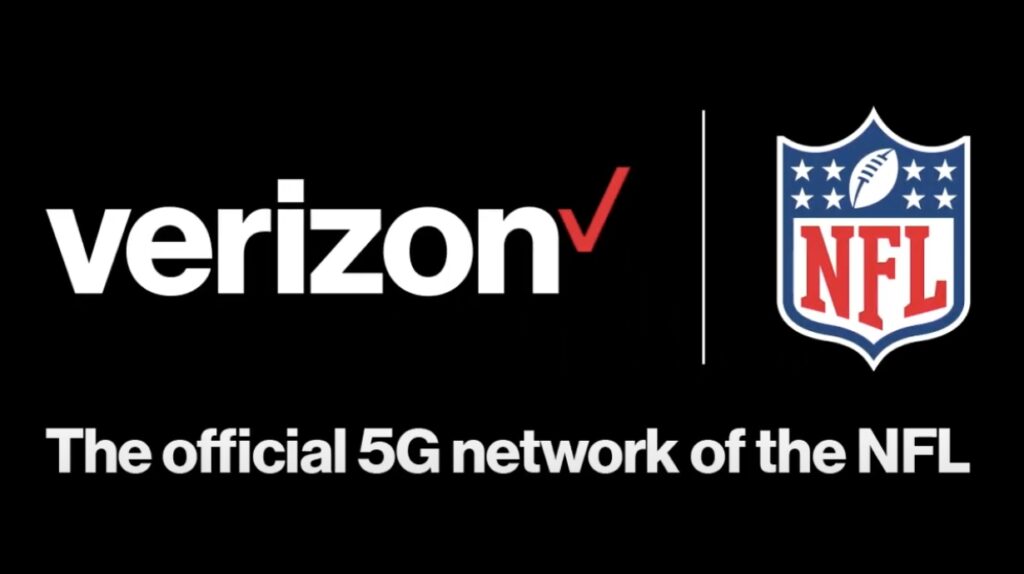
IndyCar Series: Verizon became the title sponsor of the open-wheel racing series in 2019, further solidifying its position as a leading player in motorsports. The multiyear agreement includes activations around emerging technologies like 5G and IoT (Internet of Things) to improve race operations and fan engagement.
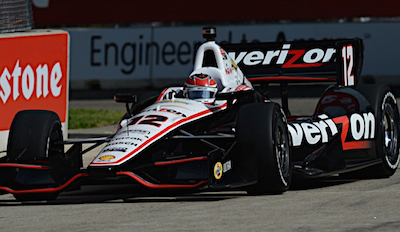
NHL (National Hockey League): Verizon joined forces with the NHL in 2010 as the official wireless provider, offering enhanced game-day experiences via mobile apps and connected arena infrastructure. The company also contributes to hockey development programs focused on growing the sport at grassroots levels.
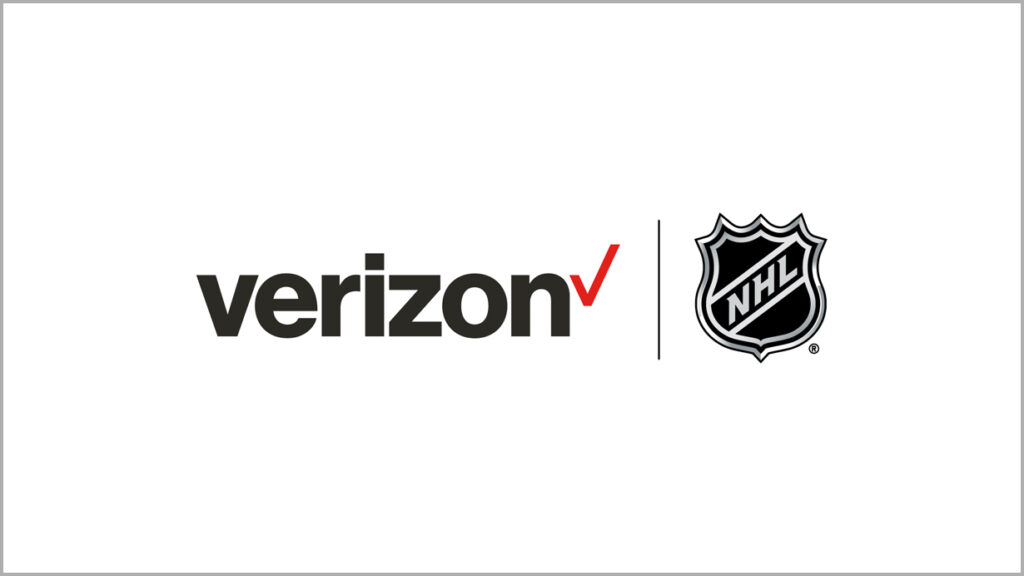
Music Festivals & Concerts: Verizon frequently partners with major music festivals and concert tours to provide exclusive content and experiences for attendees. Examples include Coachella, Lollapalooza, and Voodoo Festival.
Esports: Recognizing the growth potential of esports, Verizon has invested heavily in supporting competitive gaming leagues and tournaments. The company signed a multiyear deal with Twitch Prime to stream select Overwatch League matches and other premier esports events.
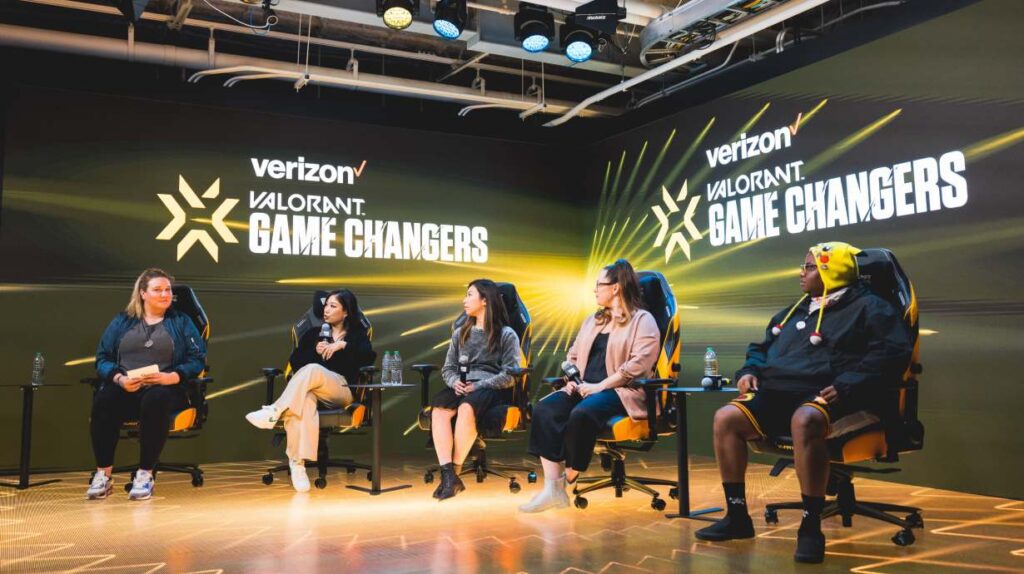
Collaborations with sports leagues, entertainment events, and cultural initiatives create additional touchpoints for engagement, reinforcing the company’s presence and connecting with diverse audiences.
In conclusion, Verizon Communications’ marketing strategies revolve around network reliability, technological innovation, customer-centricity, and a commitment to making a positive impact. By embracing digital transformation, tailoring customer experiences, and fostering a sense of connectivity beyond technology, Verizon continues to shape the way we communicate in an interconnected world.
Also Read: Top Competitors and Alternatives of Verizon Communications
To read more content like this, subscribe to our newsletter

